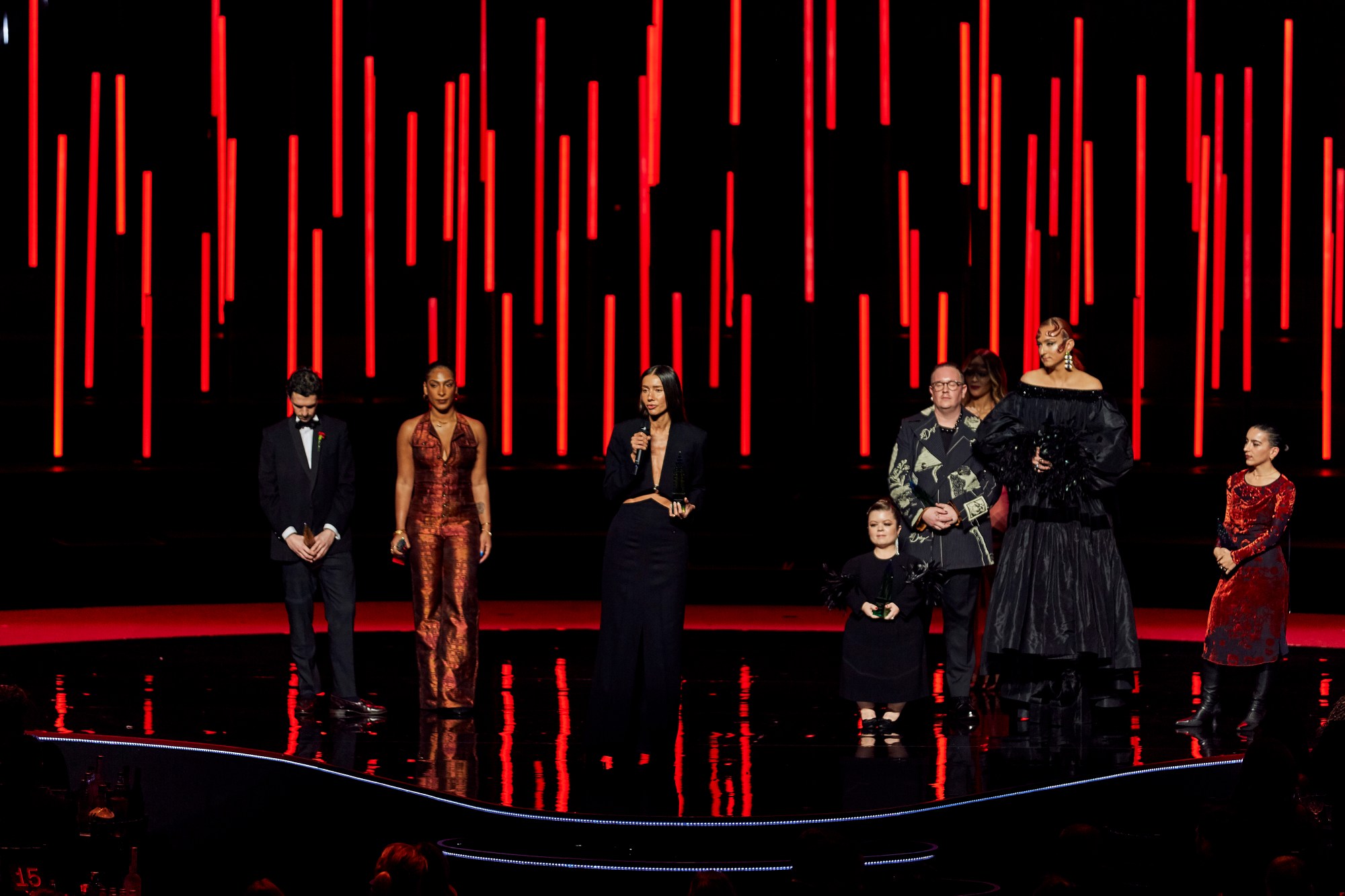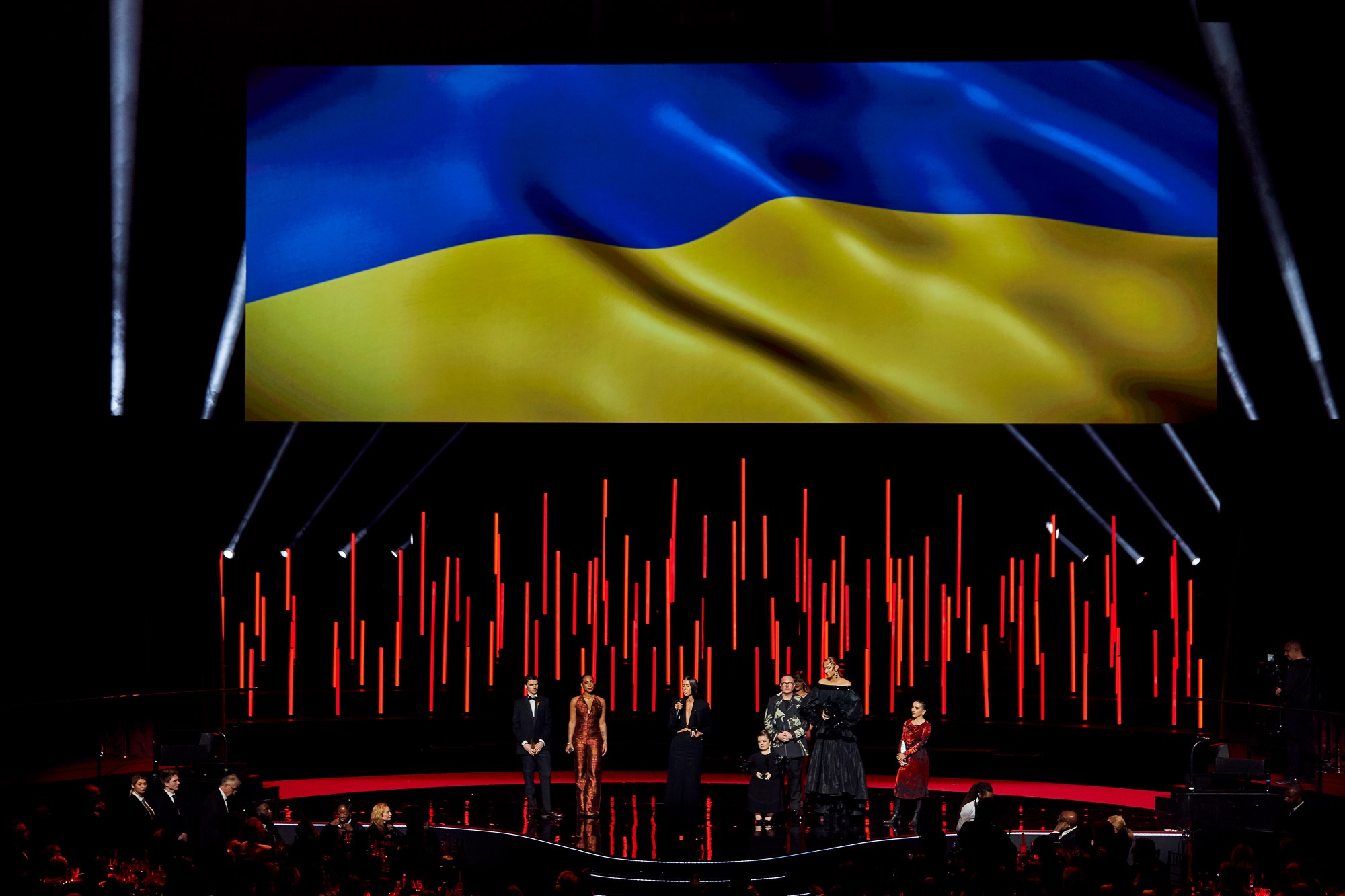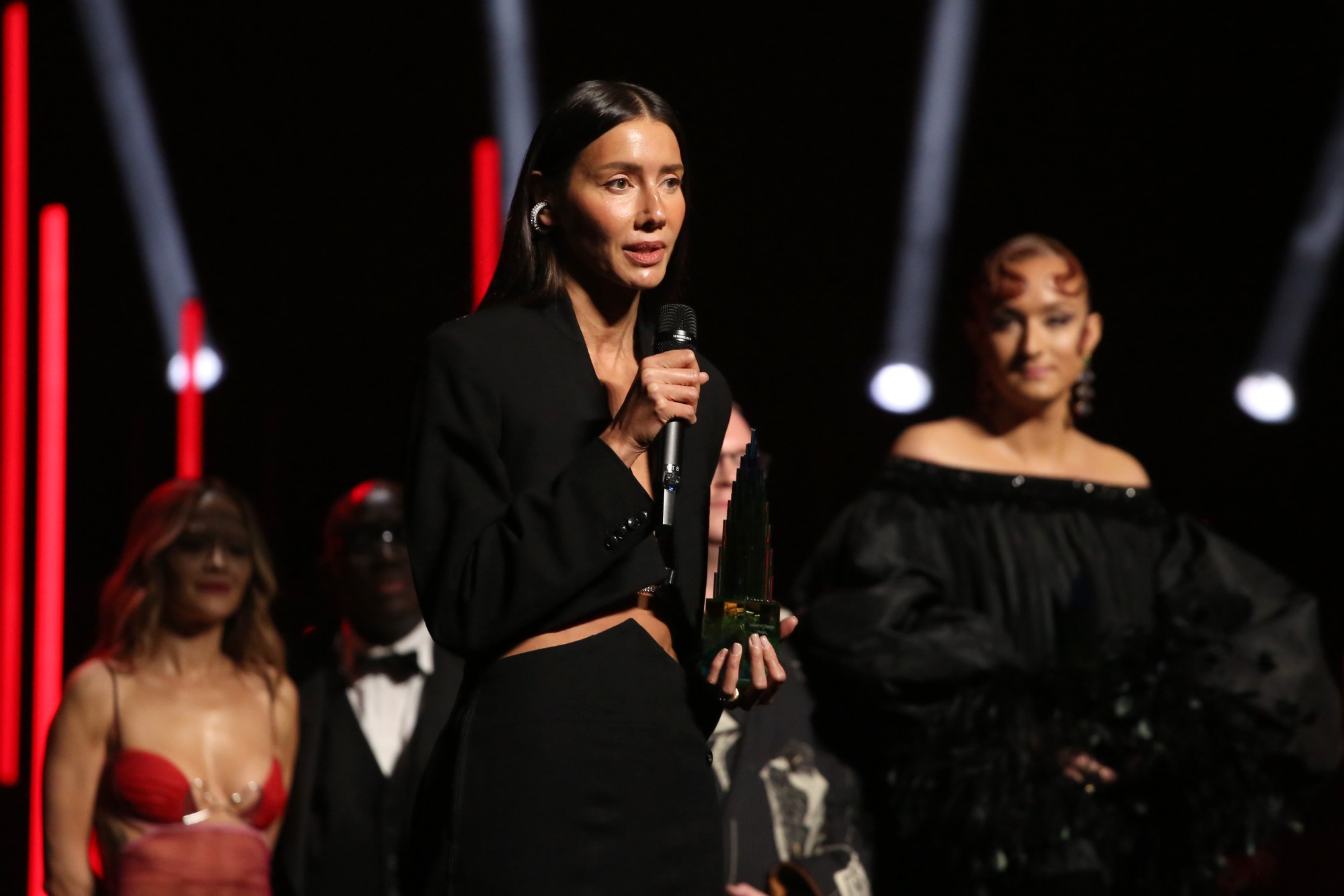When Julie Pelipas, the former fashion director of Vogue Ukraine and street style maven, first founded bettter.us (the ‘us’ standing for ‘upcycling system’) in early 2020, it was as a fashion brand underscored by a radical motive to rethink how the industry engaged with conversations around upcycling. Fuelled by a desire to fuse traditional handcraft with bleeding-edge technology — such as the use of complex data analytics and AI to create digital renders for product customisation — and to find ways to collaborate with brands to put their deadstock to good use, from the outset, the future was a promising one for the nascent brand. Despite founding the brand just weeks before the onset of the pandemic, leaving behind her full-time post at Ukraine’s foremost fashion publication to do so, Julie and her Kyiv-based team nimbly navigated the unprecedented global crisis. The process wasn’t without its trials and errors, but Julie emerged from the pandemic with steadfast confidence in the validity of the hypotheses that she was exploring through bettter.us, and in the sustainability of its future.
That was, however, until the end of February this year, when Russia began its unanimously condemned assault against Ukraine. Sensing the imminent decline of the situation in her homeland, Julie — who originally hails from the besieged Black Sea port of Mariupol — made the decision to decamp from Kyiv to London, along with her children. Once the initial shock around the war’s outbreak had subsided, and she’d received assurances regarding the safety of her team, she made the decision to pivot the focus of bettter’s mission. She founded bettter.community, an online platform dedicated to directing the global creative industries’ attention towards the thriving creative community in Ukraine, and the needs of its members. An indispensable resource, it offered a means for the world to extend aid beyond well-meaning words, and offer tangible support to Ukrainian creatives in need of work. And almost a year on, it’s continued doing so with amplified scope, following its merger with Ukrainian Instagram account GIVEN NAME to form GIVEN NAME.community.
Last Monday at the Royal Albert Hall, Julie was recognised at The Fashion Awards as one of the fashion industry’s Leaders of Change in the People category for doing “an amazing job to support creatives in Ukraine and bring the vibrant creativity of the country to the wider world”, Caroline Rush, the BFC’s CEO, said. Here, to commemorate Julie taking home the prestigious award, she discusses the current situation in her homeland, why we need to continue supporting Ukrainian creatives, and why the award is a greater victory for the country’s creative community than it is for Julie herself.

Let’s start with bettter.us. What was the motivation behind it?
It started when I was still at Vogue, working as a fashion director, and going through the typical fashion routine. I became so overwhelmed with all the questions I had about everything being so overproduced and oversaturated. I felt like we needed to slow down, rethink where we are and really think about how we can tackle the damage that we do to the world around us. I eventually reached the decision to set out on this mission, which was a huge responsibility to take on. I wasn’t sure that I’d be able to reach the point where we’d have an effect on the system and instigate meaningful shifts, and if I could really create a healthy business that wouldn’t just disappear in two years… There were so many critical questions that I had to ask myself, but when I’d decided to go ahead with it, I realised I had to quit Vogue and completely devote myself to bettter.
Then, Covid happened. It was tough to adjust, but we managed to release the very first drop remotely, with the seamstresses and constructors working from home. I felt delighted that we were able to somehow fulfil the social function of bettter from the very beginning. It’s never just been a classic brand, it’s always been about creating a platform and parallel system. We invested two years in our proof of concept stage, and we were slowly moving towards working with bigger brands, using our technologies to really create new ways for brands to integrate upcycling as part of their businesses.
“This award isn’t just for me, it’s for the wider community — I’m just the person receiving it physically, but really it’s a victory for the whole Ukrainian creative community.”
How did the outbreak of the war in February affect the brand?
Well, we were just getting to the point of finding our confidence, and then it started. During the first few months, it was impossible to even think about producing clothes. I didn’t even know if I still had a house or my production. For the first month or so, everyone was in absolute survival mode. I eventually received news that our production facility had been destroyed, but my team, fortunately, was safe. Still, the whole country was on fire. At the time, I was sitting in Greece with my mum, and Milan Fashion Week has just finished. I wasn’t thinking about the shows, but I was wondering whether I should go just to spread the message of what was happening. I eventually decided to go to Paris, and the first days were definitely the most complicated — everyone was having fun and enjoying fashion week after Covid — just celebrating life — and I was trying to share the truth about the war, sounding like a crazy person!
It was a really weird combination of feelings, but the response I got from colleagues in the industry was miraculous. They were so touched and worried about us, and wanted to know what they could do. Since it was the very beginning of the war, there were no funds and organisations — it was just chaos. Since I knew the Ukrainian fashion community, and I was part of the global fashion industry, I knew that I had to build a system that could serve as a link between Ukraine and the rest of the world, so that they could access jobs.
It seems like the outpouring of support that we saw when war first broke out has now cooled, even though the situation in Ukraine has only worsened. How is bettter.community operating now? And is this something you’re trying to address?
You’re totally right to say that the overall level of damage is now much more severe. People are living without heating, electricity or water — it’s a real humanitarian crisis. Half of our stock was burned in a missile strike. And another brand lost its entire stock a few weeks ago. They managed to create a collection in spite of all of the obstacles, and then it was all destroyed in an instant. It just seems like the world got tired of the topic. There isn’t the same level of action there, but even though we Ukrainians have decided to fight to the end, we still need the global community to really open the door to Ukrainian talents. They need as much work as possible in order to be financially stable. As a global industry, we need to collectively direct attention towards this community of professionals.
I also want to ensure that Ukrainian creatives aren’t just seen as victims, but as real talents. War isn’t something that should mark you forever. We’re creatives just the same as everyone else — designers, artists and stylists. We’re people who love art and fashion.

What would you say this award meant for you and the community you’re a part of?
Well, it’s of course a huge moment for me personally, as it’s the industry I’ve worked in for almost 20 years, and I’ve always been dedicated to proposing meaningful stories. I guess that this shows that all of my efforts weren’t for nothing! But there are a few more important contexts in which I see this award. It isn’t just awarded to me, it’s for the wider community — it’s a victory for the whole Ukrainian creative community. My people deserve this award; they’ve earned it on account of the resistance and bravery they’ve shown during this time.
What does the immediate future look like for bettter?
We’ve actually paired up with GIVEN NAME, another online Ukrainian community. They’ve been doing such a passionate job, so I reached out and asked if they’d like to run the community aspect of bettter, and the name of that aspect is now GIVEN NAME.community. We’ve discussed ideas including publishing books for our talents, helping them with festivals and just really pushing how we’re able to help people to another level.
With bettter.us, it’s been challenging. I initially relocated everyone to Portugal, but my girls became depressed there as they wanted to return to Ukraine. It wasn’t an easy decision, but they really ensured and convinced me that it was the decision they’d come to, and they took full responsibility for it. I relocated them back to Kyiv, where we operated happily for two months, but when bombing began in the city centre and infrastructure started being damaged, I was falling asleep and thinking that if anything happened to anyone, I wouldn’t be able to handle it mentally. I would just have to close the brand. So, I decided to bring them to safety until we can be sure that Kyiv is a safe place, and relocated our R&D to London. Part of the team has come here, and another has moved to Portugal to oversee production. That’s where we are right now. It’s not necessarily a happy ending, but I hope that people reading this will understand what’s currently happening and will gain a different perspective on these events.
